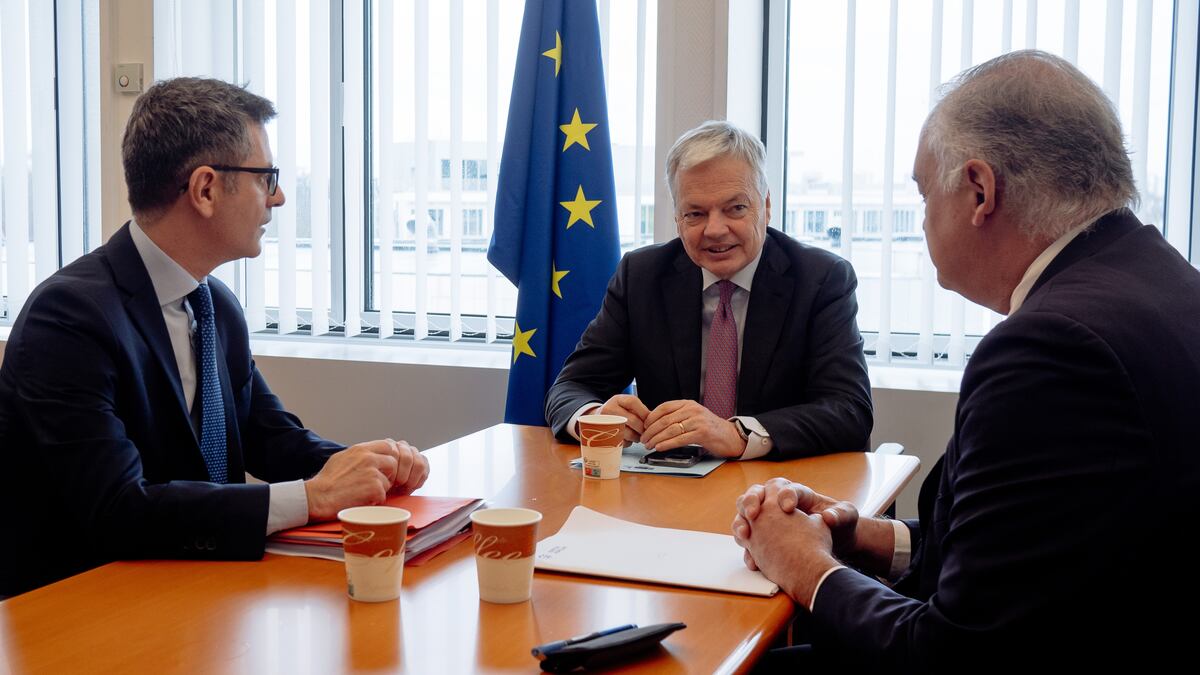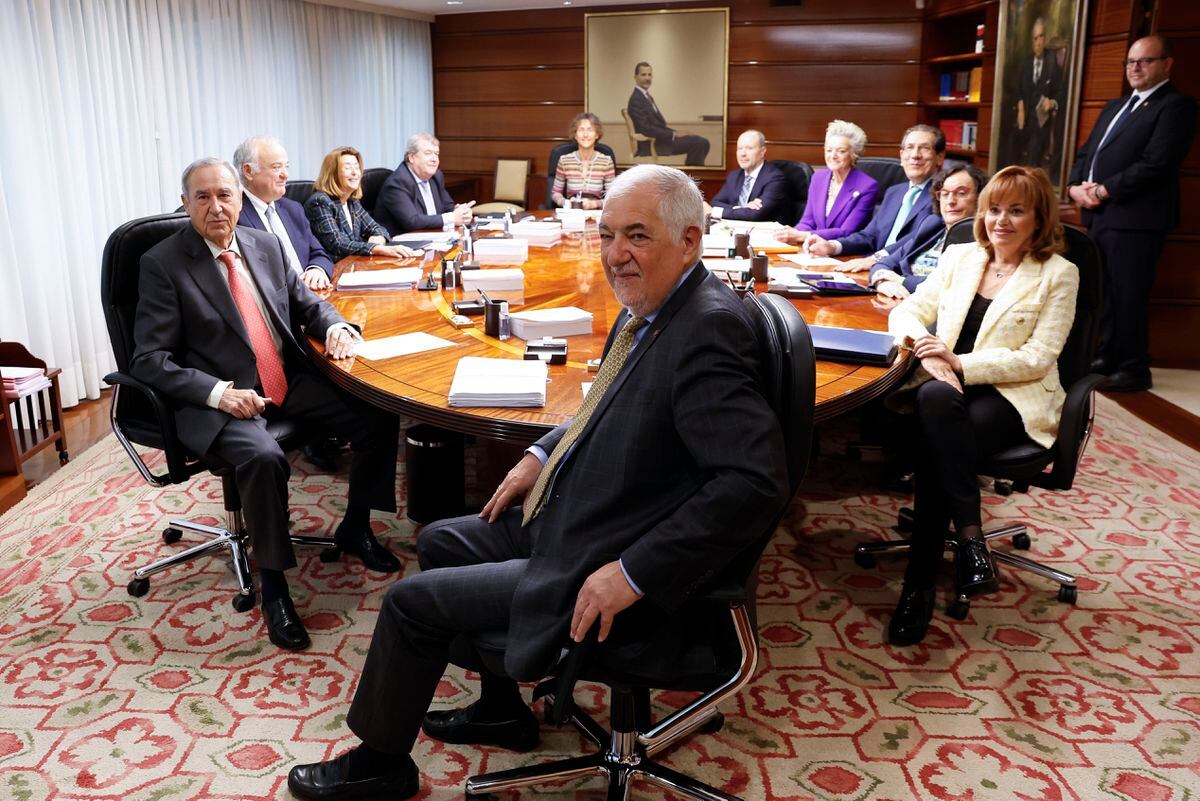The discontent grows in the Constitutional Court due to the blockade in the renewal of four of its magistrates.
A third of the guarantee body has had its mandate expired for almost six months due to the paralysis imposed by eight members of the General Council of the Judiciary elected at the proposal of the PP, who refuse to even propose candidates to undertake the appointment of two new magistrates to the Constitutional that, together with the two that correspond to the Government, must replace the four that have their mandate expired.
The court has been chaining plenary sessions for five months with a filling agenda and avoiding the most relevant sentences.
They do it this way so that it cannot be said that the Constitutional Court is paralyzed.
But the reality is that the most transcendent issues are not being addressed, by express decision of the president, Pedro González-Trevijano, and the vice president, Juan Antonio Xiol, who refuse to resolve the appeals with greater political depth while the court continues in office, with a composition expired since June 12.
Numerous issues are pending that the conservative members of the Council of the Judiciary want to agree on the appointment of two Constitutional magistrates, and that this can start a new stage, with the other two that the Government must designate.
In this situation are, among others, the sentences on the appeal of the PP against the law of abortion deadlines (pending since 2010), euthanasia, the educational reform of the
Celáa law
or the possible return of the seat to the former deputy of Podemos Alberto Rodríguez.
They are also awaiting rulings on the validity of the oaths to abide by the Constitution taken by parliamentarians from various nationalist and left-wing formations upon assuming their seat, or the legislation to avoid complying with the sentences that establish a minimum of 25% of classes in Spanish as vehicular language in schools in Catalonia.
While they wait for this renewal to take place, the Constitutional magistrates are struggling and wanting to provide the president - who is responsible for preparing the agenda for the plenary sessions - the ideal material to give meaning to the work of the court, which In the absence of rulings on the most important laws of the legislature, it has concentrated on resolving amparo appeals from citizens who denounce violation of their fundamental rights in all kinds of cases.
The sensation of provisionality and improvisation has settled in the court.
The call for the plenary session to be held this coming week has been, in this sense, somewhat bumpy.
From the outset, only nine magistrates are going to participate in that meeting, unless the two who had scheduled trips for this end of the month change their plans, in which no plenary session was scheduled until last Wednesday it was decided to organize it.
With nine magistrates there is a sufficient quorum, but it is not advisable to submit matters of greater importance to deliberation.
The agenda has been made in pieces, with various amparo appeals —among them two that affect the former president of the Generalitat Carles Puigdemont on the vicissitudes of his recognition as a member of the European Parliament—, and other matters that first entered the forecasts and then they fell off.
And among those that were maintained, some that the magistrates, except for the rapporteur in each case, have had to study at a forced march, because the pace of elaboration of sentences no longer has anything to do with the usual customs of the court.
In the Constitution, in short, at this time there is no method.
"We walked aimlessly", confessed to EL PAÍS one of the members of the court, whose members are perplexedly following the evolution of the conversations within the General Council of the Judiciary to appoint the two magistrates that it is up to them to choose.
In the guarantee body it is clearly perceived that the conservative sector of the Council has been making all kinds of excuses since last September to make renewal difficult, first with the argument that they could not find candidates, then that the one proposed by the progressive sector did not seem good to them , later with which they disagree on the methodology for the election.
Meanwhile, each postponement means weeks or a whole month of delays for the next deal attempt,
Until now, what the court feared the most in this context was that the Government would get tired of waiting for the Council, and name the two magistrates that it was responsible for appointing.
I saw it with concern, knowing that the plenary session of the Constitutional Court in charge of granting approval to those appointed would be divided, because the conservatives believe that the court has to be renewed by thirds by mandate of the Constitution itself, which implies four magistrates, and not just two
For weeks, however, that climate has begun to change.
In the court, the opinion that the renewal cannot and should not wait any longer is very majority.
The conservative sector of the court has fully assumed, in parallel, that the new Constitutional majority will be progressive, and that there are only two candidates ―Cándido Conde-Pumpido or María Luisa Balaguer― to reach the presidency.
Therefore, they consider that prolonging this blockade situation can only increase the damage that is being caused to the court.
In this context, there have already been several sessions of the two Chambers into which the Constitutional Court is divided that have ended with farewells among the magistrates, convinced that each one of them was going to be the last.
The four who are going to leave ―the aforementioned Trevijano and Xiol, together with Antonio Narváez and Santiago Martínez Vares― have committed personal and professional plans for months for the time of their departure, which does not arrive and may end up disrupting their forecasts, because they affect to Universities, the Prosecutor's Office or law firms that also work with projects and calendars that are difficult to change.
Subscribe to continue reading
Read without limits
Keep reading
I'm already a subscriber

/cloudfront-eu-central-1.images.arcpublishing.com/prisa/Y3H7EZJF75AS3NEUSVMBZE2RWE.jpg)
/cloudfront-eu-central-1.images.arcpublishing.com/prisa/OTWB63YVDRNKAQLEH7S4FTFBNI.jpg)






/cloudfront-eu-central-1.images.arcpublishing.com/prisa/DXFPLFBJPRDFBOOW5OWCTCNHJU.jpg)